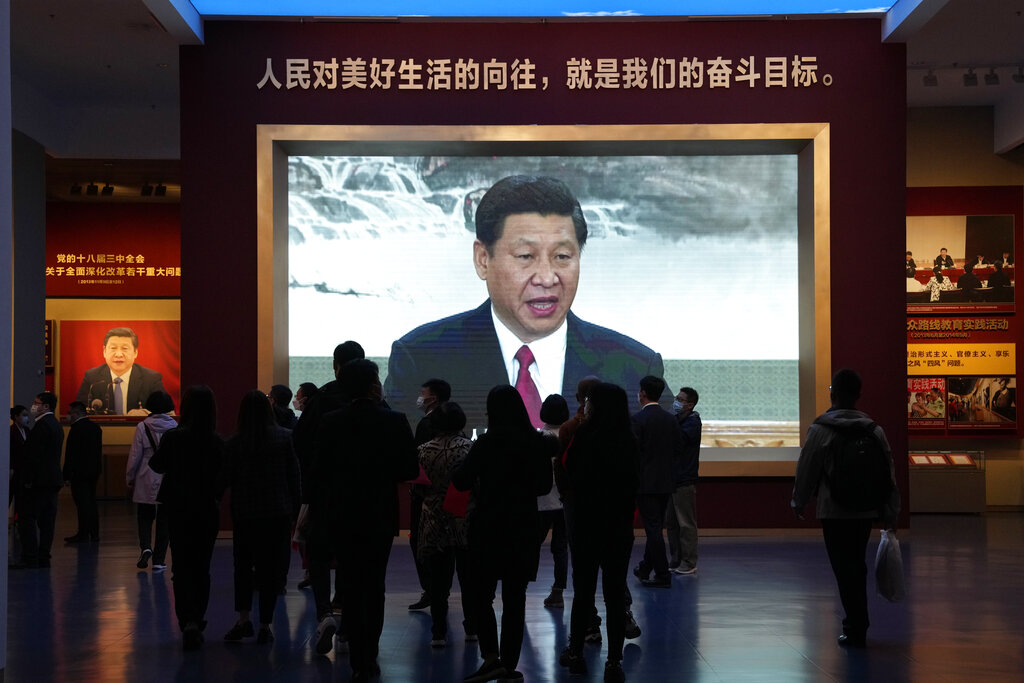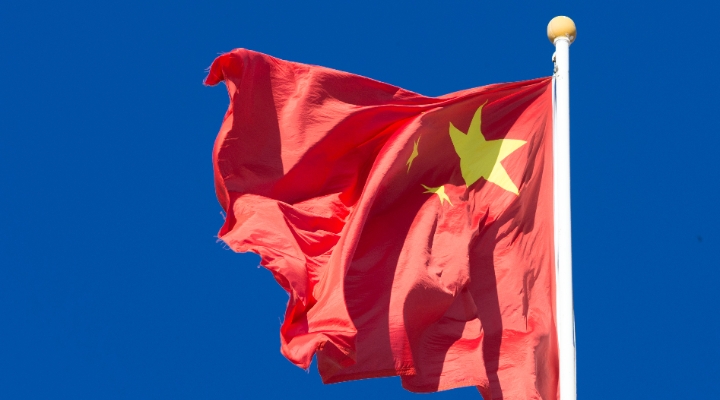
Investors in China assets are no strangers to the market cyclicality. This time, though, investors had nowhere to hide, as both stocks and bonds (particularly low-quality property bonds) sunk together. Adding to the pain, the trough has extended for a while now. Investors were nearly two-years into the dual correction in stock and bonds since the peak hit in February 2021, until the rebound of the past month.
It’s too soon to tell if this bounce is the beginning of the next bull run or not, but this previous bear market has been the longest in the short history of the Chinese equity market.
Easing of COVID Restrictions Can Be a Game Changer
At this juncture, investors are looking for signs from government officials that a committed exit from COVID restrictions is in the offing, and that could be a game changer. Market watchers believe this will be an inflection point for Chinese equities to turn around.
Most recently, rare public demonstrations swept across the country as citizens protested the government’s zero-COVID approach. Some think that this has helped the government pivot to an accelerated stage of reopening after three years of pandemic restrictions. The Chinese government has softened its tone with no mentions of “dynamic COVID-zero policies” in the latest official communiques.
A unified message by the Politburo of the Chinese Communist Party is that the authority is reprioritizing economic growth. First, the government will gradually roll back on the zero-COVID policy, which is widely recognized as the most potent economic stimulus. To revive the property sector and restore confidence of investors and homebuyers, the regulators announced in late November the new Three-Arrow rescue package, targeting to improve three financing options–credit, bond and equity financing– for developers. This comes on top of the tightening measures Three Red Lines, aimed to restrict developers from raising excessive debt.
China Remains a Relative Return Opportunity
In China, the macroeconomic conditions have turned more favorable, especially compared to other major global economies that might tip into a recession in the next 12 months. From a multi-asset perspective, Keiko Kondo at Schroders is optimistic about Hong Kong and China equities, among other asset classes in 2023.
“If we are thinking about the global economy going through a recessionary-phase, some export-oriented economies could be suffer from a lower demand, while China, coming out from the cyclical normalization, is likely to present interesting opportunities,” says Kondo, who manages Bronze-rated Schroder China Asset Income fund and Neutral-rated Asian Asset Income Fund.
She continues: “We find that if it's even with the recent rally, given how much is underperformed, China so much cheaper than the rest of the world.”
As Stocks Recover, Fewer Companies are Undervalued
Even a month ago, global asset managers and allocators were unclear about the visibility of China’s reopening agenda, but since then, the changes of sentiment have accelerated.
Wenli Zheng, a portfolio manager at T. Rowe Price, says: “The [reopening] was announced a month ago. Clarity has increased over the past few weeks. Until several days ago, there were still doubts about the reopening, especially among the foreign investors. But after the latest announcement of the 10 guidelines, now it is becoming a consensus.” With this, Zheng believes the sentiment from global institutional investors will improve over the next few quarters.
The buoyant sentiment has positively catalyzed stock performance, with share prices inching closer to their assigned fair values. For instance, the rally staged by Macau casinos, China airlines, and Trip.com, is indication of a turning point in investor sentiment. On the other hand, since the rally, these stocks are further away from undervalued territory.
Lorraine Tan, director for Asia equities at Morningstar, warns investors against crowding into names that have already been running up for some time. The aforementioned Macau casinos, China airlines and Trip.com have all already caught up to their fair values based on Morningstar’s analysis, which reflects a full reopening in 2023.
“The upside risk to our earnings forecasts is more likely to come from supportive policies to drive consumption. We think it’s possible for the government to add stimulus through shopping voucher handouts and lowered vehicle purchase taxes. This could shift the consumer recovery forward,” says Tan.
A recovery in manufacturing activities is also expected. While a flare-up in COVID cases might overwhelm the factory plants, companies will need to impose lockdowns in worker dormitories and periodic disruptions in production for example. Tan adds: “We could still see supply chain negative news flow in the first quarter. But overall, we think the market will focus on the reopening positives.”
4 Moat-y Stocks That are Still Undervalued
Despite the rebound in travel stocks, there are some opportunities left.
T Rowe Price’s Zheng, who has positioned his China Evolution Equity Fund for the accelerated reopening, believes in the influence from resumed business activities.
“Initially, people will all move into names like travel, restaurants, and Macau gaming. Some of them will also move into pharmaceutical companies or drugstores that benefit from the initial relaxation.” But as the visibility of a reopening is widely recognized, Zheng thinks much of the upside may have been priced in already.
“We always want to think about what's the next step. What are the next buckets that will benefit but have not fully been appreciated by the market yet?”
To Zheng, examples would be companies that make sportswear, furniture and home appliances, all of which will ride on an improvement in the overall economic conditions and domestic consumption. Beneficiaries can also be found in late-cycle type of businesses, such as advertising, recruiting, business service, which will see more meaningful improvement towards the second part of 2023, says Zheng.
Many other wide-moat companies, which aren’t a direct beneficiary, sit deep in the undervalued territory. As of this writing, Tencent Holdings (00700) trades only at half of their fair value given by Morningstar analysts. E-commerce platform Pinduoduo Inc (PDD), artificial intelligence and search giant Baidu Inc and Yum China Holdings (09987) are among the preferred moat-y names.
Tan explains: “A recovery in advertising-revenue should help lift both Tencent and Baidu while the former is also expected to benefit from additional game approvals. Meanwhile, after its strong third-quarter earnings, a gain in market share and a favorable momentum buoys Pinduoduo. Foot traffic to shopping malls and restaurants should boost Yum China.”
Volatility Is Expected, But Will Slowly Fade
China can learn some lessons from the reopening in other markets. For instance, loosening COVID restrictions can lead to initial setbacks in the form of rising cases, and also increased stock market volatility. Fluctuations in Chinese assets can be expected.
Schroders’ Kondo says: “In this market environment you have to be careful with volatility, but generally you can still expect more upside because the market has been underperforming so much. It's not about political risk, but simply the cyclical nature of the market. When we think about economic activities resuming, that cyclical side cannot be ignored.”
Joshua Crabb, head of Asian Pacific equities at Robeco, expects the volatility to stay, particularly after we've had a very sharp upward move. Primarily, markets will still fluctuate as a rise in infections overwhelms China, but most of that should happen over the first quarter or so, he thinks.
Crabb, who manages Bronze-rated Robeco Asia-Pacific Equities, is not overly concerned about volatility and adds: “We do have a number of other examples of how we can watch this play out in the world. People seem to have forgotten what happened in various other markets. We all know it gets bad before it gets better.” As the transitions get over, investors should expect less volatility but more policy certainty, thus creating a better environment for returns.
Do Not Trade Every Piece of Policy News
The divergence in views about China is also a source of volatility, which will come down as the market reaches a consensus, says Jian Shi Cortesi, investment director at GAM Investment Management.
“Instead of looking at every single little detail of the COVID policy, our sense is that the direction is towards reopening. If that's the case, we want to be positioned for that. In the meantime, if the market has volatility, we just ride out the volatility. Trying to play all the short-term news is extremely challenging,” says Cortesi.
She adds that those with bearish views on China are now scrambling to unwind their short positions after the relaxation on COVID policies and a deep correction. “We have already seen the short-selling ratio in the Hong Kong market coming down. As the short-selling volume becomes smaller, that could help reduce the volatility,” Cortesi says.
In her equity portfolios, other than names capturing longer-term trends like clean energy and consumption upgrades, she also buys low-valuation stocks that potentially give protection against the downside.












.png)





.jpg)





